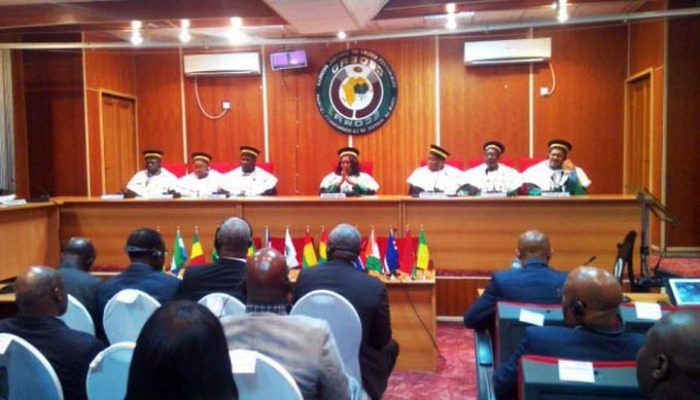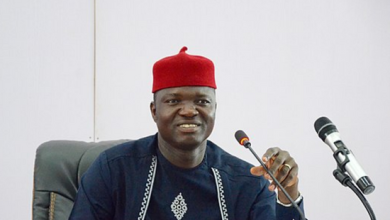MRA Demands Immediate Implementation of Blasphemy Judgment by FG

In response to the April 9, 2025, ruling by the ECOWAS Court of Justice that certain provisions of Kano State’s blasphemy laws violate Nigeria’s obligations under the African Charter on Human and Peoples’ Rights (ACHPR) and the International Covenant on Civil and Political Rights (ICCPR), the Media Rights Agenda (MRA) has urged the Federal Government to act immediately to implement and fully enforce the ruling.
MRA emphasized that failure to follow the court’s order to bring all such laws in Nigeria into compliance with its international human rights obligations would worsen Nigeria’s reputation as a democracy dedicated to its citizens’ fundamental rights, undermine the rule of law, and weaken the regional human rights system.
The ECOWAS Court ruled unanimously on April 9 in a case brought by the human rights organization Expression Now Human Rights Initiative that the blasphemy provisions in the Kano State Penal Code, its Sharia Penal Code Law of 2000, and similar provisions in other laws violate human rights guarantees, particularly the right to freedom of expression, which is guaranteed by the African Charter and the ICCPR.
The court also decided that Nigeria must make sure that its internal laws, including state-level legislation, adhere to the African Charter and the ICCPR since it is a signatory to both of these international agreements.
Because the blasphemy provisions in the Kano State Penal Code, its Sharia Penal Code Law of 2000, and similar provisions in other laws are incompatible with Nigeria’s obligations to guarantee freedom of expression under regional and international instruments, it ordered the Federal Government to ensure their repeal or amendment.
The death penalty is usually reserved for serious crimes like murder, terrorism, or genocide where there is a clear victim who has suffered grave harm, not speech or disdain, according to a statement released in Lagos by Mr. Monday Arunsi, Acting Head of MRA’s Legal Department, who said the organization fully agreed with the court’s reasoning. In order to maintain public peace and ensure respect for others’ religious convictions, the court believes that the state could restrict the right to free speech in less severe ways.
Mr. Arunsi stated that Nigeria is unable to choose which of its international commitments to uphold. The Federal Government is legally and morally obligated to abide by the ECOWAS Court’s ruling and make sure that all federal and state laws, particularly those that safeguard the rights and freedoms guaranteed by the African Charter and the ICCPR, which Nigeria has voluntarily ratified, are in accordance with the regional and international instruments to which it is a state party. As such, compliance is mandatory.
Read Also: Shagari’s Grandson Slams Buhari, Commends Tinubu for Respectful Tribute
He said that the court’s ruling confirms long-standing worries among human rights activists in Nigeria and abroad that some parts of Kano State’s Sharia Penal Code and comparable legislation in many other states—especially those that criminalize blasphemy and call for severe penalties like the death penalty—are incompatible with international human rights norms.
“Showcase leadership in the region by taking immediate steps to engage with the government of Kano State and other states with similar laws to ensure a comprehensive review and reform of such legislation, in line with Nigeria’s international obligations and in compliance with the court’s orders,” Mr. Arunsi urged the Federal Government.
In addition to emphasizing that “respect for the rule of law and for the decisions of competent international courts is fundamental to the protection of human rights, the promotion of justice, and the preservation of Nigeria’s standing in the international community,” he emphasized that such reforms should include the amendment or repeal of all provisions that violate the right to freedom of expression while maintaining freedom of thought, conscience, and religion.
The National Assembly, the National Human Rights Commission, and other pertinent organizations were also encouraged by Mr. Arunsi to do their share to guarantee that Nigeria’s legal system completely complies with its obligations under regional and international human rights treaties.
17. July 2025 There are no remarks.





